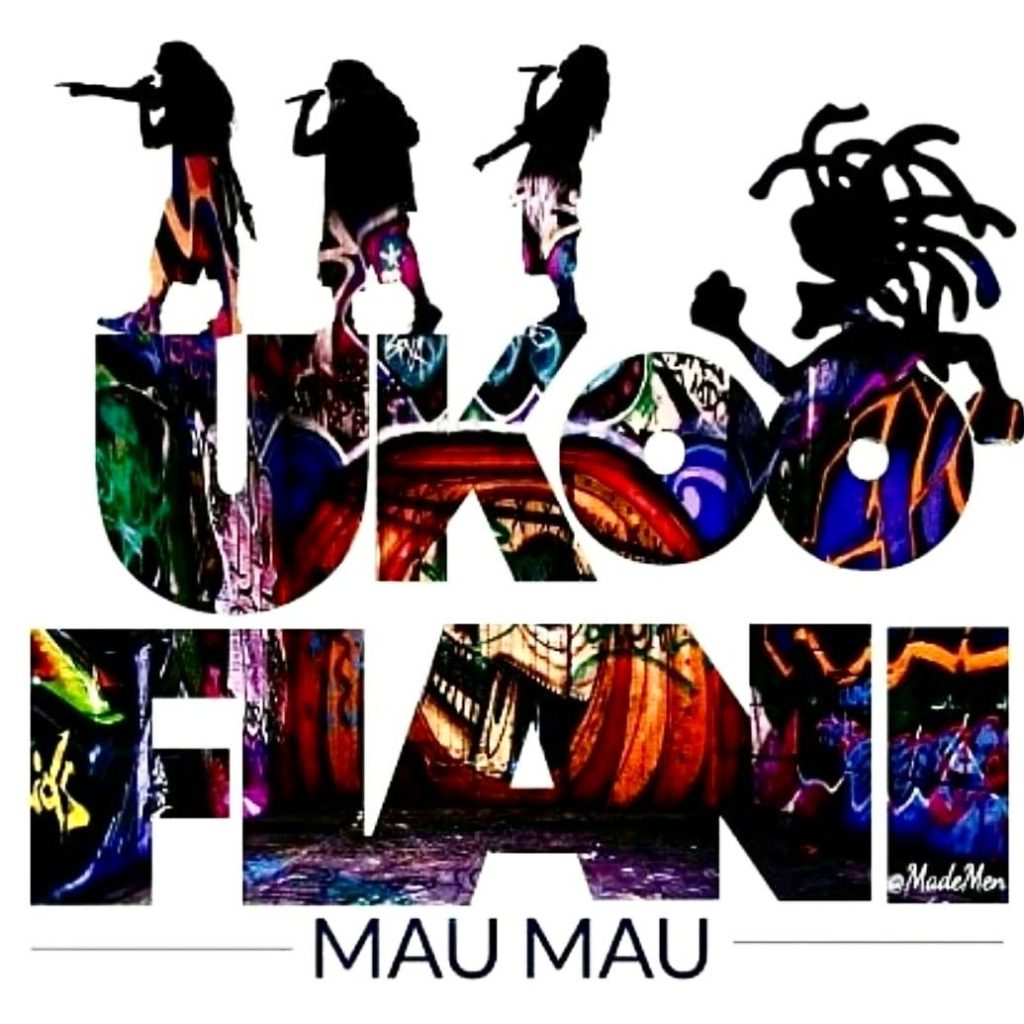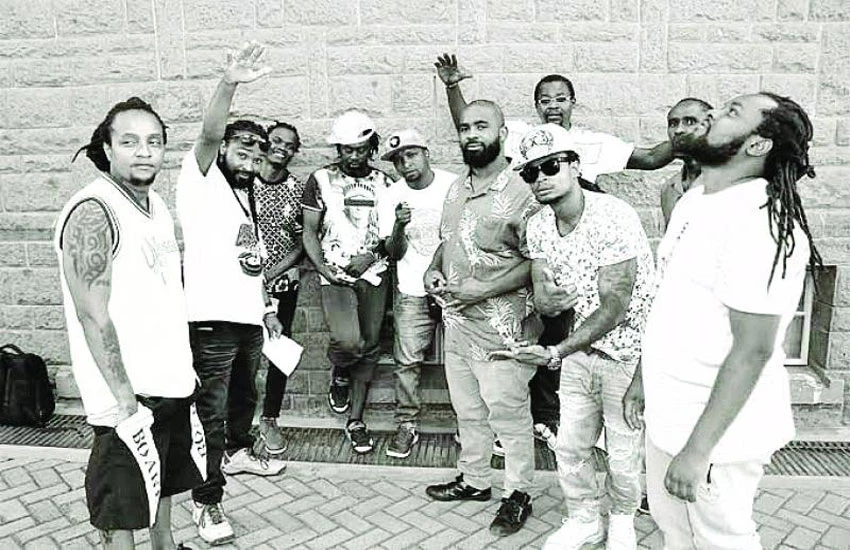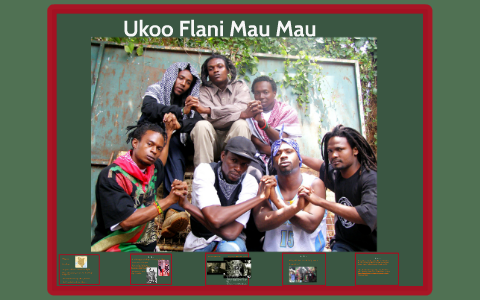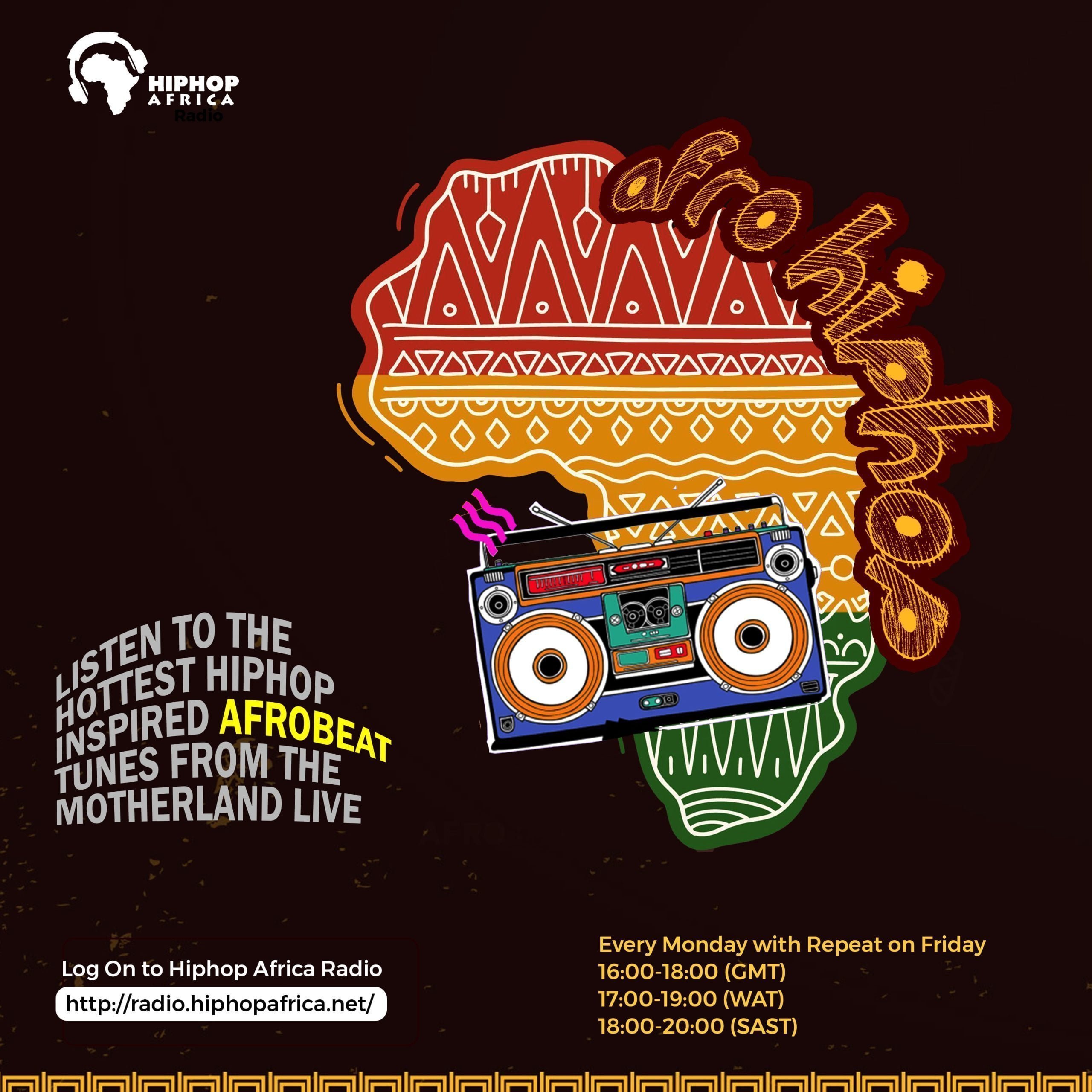Ukoo Flani Mau Mau is a hip-hop group from Kenya that emerged in the early 2000s. It is a collective of underground MCs from different slums in Nairobi and Mombasa. The group deployed socially conscious and politically charged lyrics to address the societal issues in Kenya.

Ukoo Flani Mau Mau popularized Sheng, a slang language that mixes Swahili and English, in Kenyan hip hop.
UKOO FLANI is an acronym that reads ‘Upendo Kote Olewenu Ombeni Funzo La Aliyetuumba Njia Iwepo’. This directly translates to love everywhere for all who seek the teachings of the creator; there is a way. They collectively enable hip-hop to be the language to pass the actual/valid message to society.
The Legends’ Origin
The group was formed by MCs inspired by Kalamashaka, another pioneering Kenyan hip-hop group. They mentored and supported young MCs from the slums, who formed crews and recorded songs at Mandugu Digital studio.
These crews included Mashifta, Wenyeji, Wakamba Wawili, and Ghetto Fabulous.
In 2001, these crews came together to form Ukoo Flani Mau Mau to create a united voice for Kenya’s youth.
The group also expanded to include MCs from Mombasa, who brought a coastal flavor to the group’s sound. The group’s members often refer to themselves as “Watoto wa Mau Mau” (children of Mau Mau). This is an expression of their connection to the history and struggle of their ancestors.
Career
Ukoo Flani Mau Mau’s career traces back to the late 1990s when some of the founding members were part of Kalamashaka.
Interestingly, the group had a rite of passage to test the member’s lyrical ability and skill level. A group member got officially admitted after winning a rap battle at F2.
Ukoo Flani Mau Mau’s first album, Kilio Cha Haki (Cry for Justice), was released in 2006. The album featured 18 tracks that tackled various social and political issues in Kenya, such as corruption, tribalism, and violence. The album received good reviews from critics and fans alike.
Some of the popular songs from the album include “Mazishi ya Polisi” (Funeral of a Policeman), “Umati” (Crowd), “Dhuluma” (Oppression), and “Hatuna Tena Nafasi” (We Have No More Space).
Impact on Kenyan Hip-Hop and Culture
Ukoo Flani Mau Mau is widely regarded as one of Kenya’s most influential and respected rap groups. The group has been instrumental in shaping the Kenyan hip-hop scene and culture., especially in language, style, and content.
The group’s use of Sheng has inspired many other Kenyan artists and fans to embrace their local dialects and identities. Their dressing style, which often incorporates elements of African fabrics, colors, and accessories influenced the fashion and aesthetics of Kenyan hip-hop.

The group’s content, which focuses on the social and political issues affecting the Kenyan people, has also challenged and inspired other artists and fans to use their music as a tool for awareness, education, and activism.
Ukoo Flani Mau Mau has mentored and supported many upcoming and established Kenyan hip-hop artists, such as Juliani and King Kaka. The group has also collaborated and performed with many local and international artists, such as K’naan, Dead Prez, Talib Kweli, Akon, and Damian Marley.
Highlights
The group has also received many awards and accolades for their music and contribution to the Kenyan hip-hop industry, such as the Kisima Music Awards, the Chaguo La Teeniez Awards, the Mzuka Awards, and the MTV Africa Music Awards.
Some other notable achievements include:

Collaborating with other Kenyan and international artists, such as Nazizi, K’naan, Dead Prez, Talib Kweli, Akon, and Damian Marley.
Performing live in various venues and events, such as Eastlands 2007 Edition. They joined forces with other Kenyan hip-hop artists to promote peace and unity.
Creating songs that address the social and political issues affecting the Kenyan youth, such as corruption, tribalism, violence, and HIV/AIDS.
Popularizing the use of Sheng, a slang language that blends Swahili, English, and other local dialects, in Kenyan hip hop.


